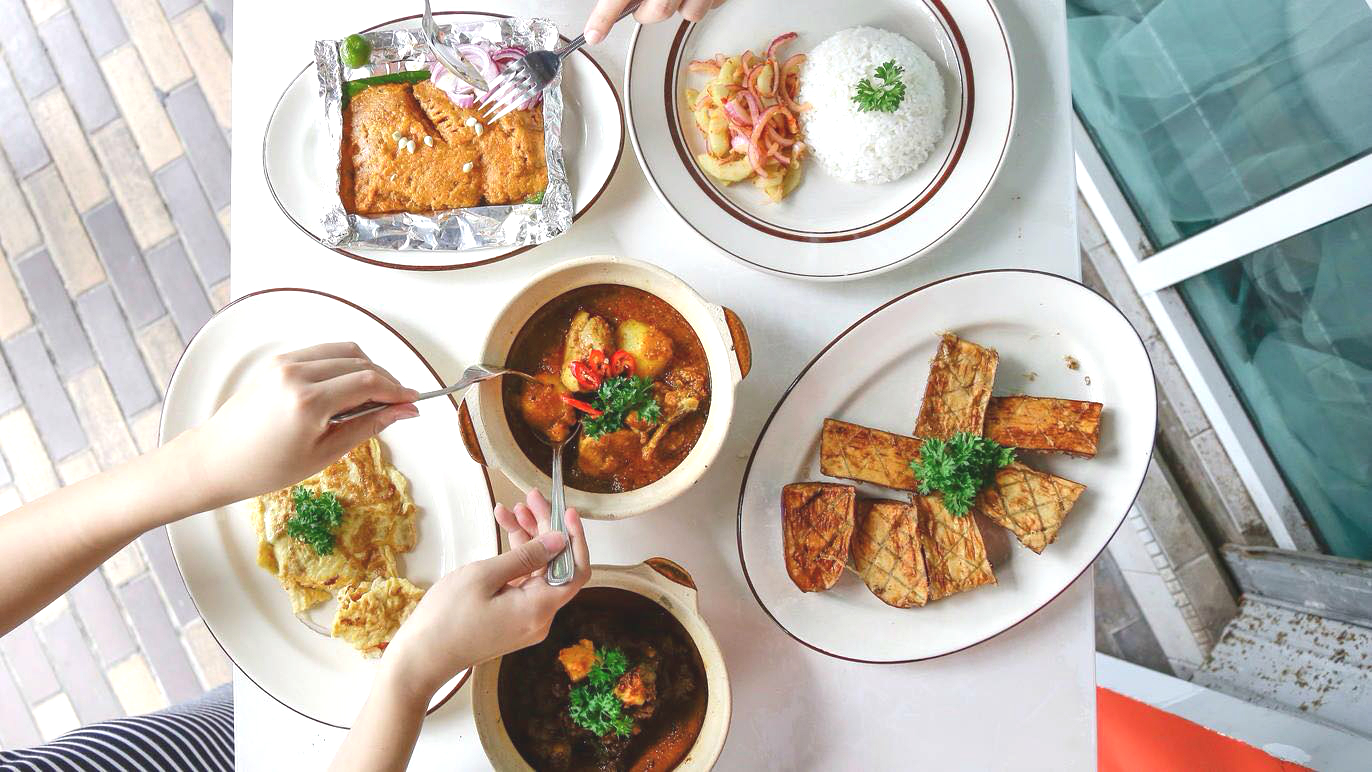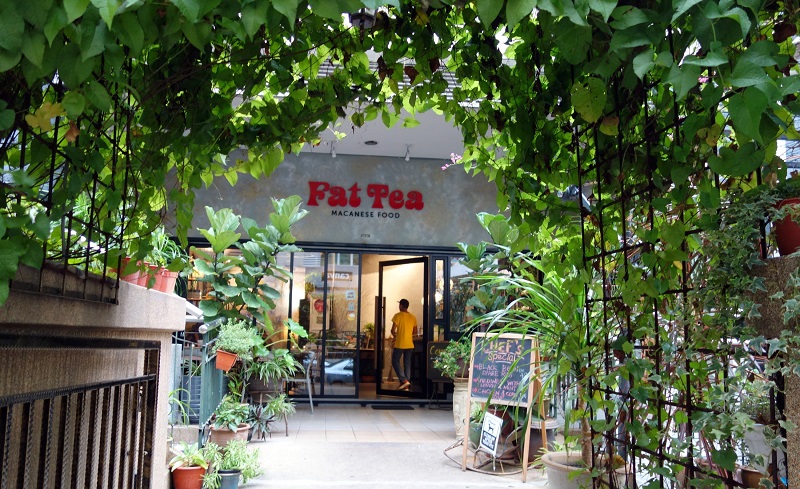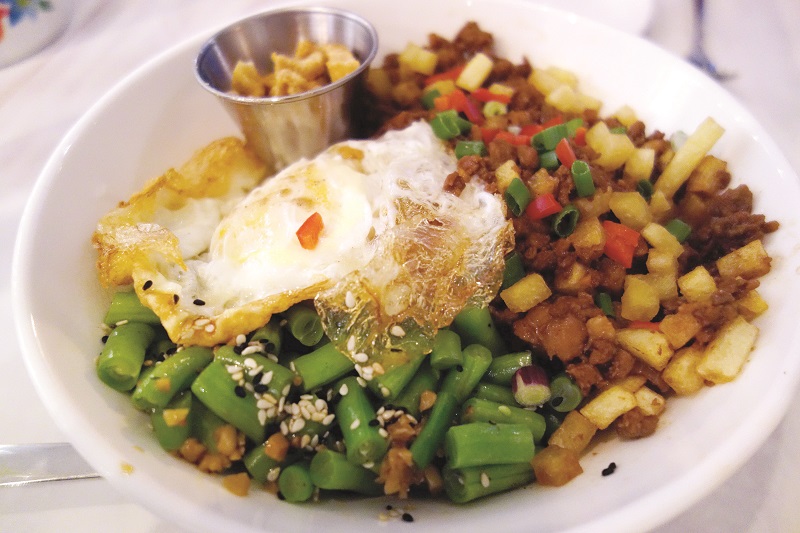
(Photo credit: Kumi restaurant)
Regional cuisine, often regarded as reflective of the culture and tradition of a place, are usually evolved versions of various influences. For example, tempura — a signature Japanese dish — is a cooking technique that was introduced by the Portuguese and incorporated into Japanese food.
Southeast Asian cuisine is associated with spiciness, yet chillies are not indigenous to the region but were brought from South America by Portuguese explorers during their great journeys in the 15th and 16th centuries. In fact, the Portuguese have had a wide influence on culinary traditions in many parts of the world, corresponding with their early explorations.
In this part of the world, the Portuguese left their influence in more direct ways. Two of these are the Kristang (Portuguese-Malaccan) cuisine — from the Portuguese presence in Melaka in the 16th century — and Macanese (Portuguese-Chinese), with Macau having been a Portuguese colony from the 16th century until 1999.
Over the centuries, Kristang cuisine has also been influenced by Malay, Indian and Peranakan fare. Kumi (which means “eat” in Kristang) provides a selective but representative menu of Kristang food, with the kitchen crew — helmed by Rueben Moissinac — hailing from the Malaccan-Portuguese community.
The interior of the smallish restaurant has cool shades of grey, giving it a modern, contemporary look. It is located in a cosy nook in Damansara Heights.

The home-made, made-from-scratch approach is immediately evident in the food, with thick, convincing curries and deep flavours. It is like dining in someone’s home — that someone being steeped in knowledge of traditional cuisine and an excellent cook to boot. Kristang cuisine does not have many vegetable dishes, hence the sambal timun provided with white rice.
Several dishes — pongteh, otak-otak and curry keluak — show the influences of other cultures in Melaka, although the Kristang have their own interpretations. For example, their otak-otak (RM16.80) is baked instead of steamed, the result being a remarkable, full-bodied fish dish, with ikan tenggiri (Spanish mackerel) filling. The Curry Devil (RM17) is outstanding, with the essential vinegar and mustard seeds in a freshly pounded spice mix for a thick, spicy sauce and a unique and distinctive taste.
Similarly, Mutton Ketumbar (RM18.80), a dry-style curry, is balanced, rich and spicy, yet not overpowering, with tender pieces of mutton slow-cooked in the curry.
The Sago Gula Melaka (RM8) is unusually aromatic, with good Gula Melaka, thick santan and a dollop of vanilla ice cream, while the typical Sugee cake (RM12 per slice) with icing topping is fine-grained and delicate — no surprises given that it is from the kitchen of the chef’s relative.
Melba Nunis (who now cooks for the Majestic Hotel) may be the celebrity Kristang chef, but a younger generation at Kumi is continuing the tradition and doing Kristang cuisine proud.

Macanese must be one of the world’s earliest fusion foods, being a unique mixture of Portuguese and Cantonese cuisine, and being distinctly different from either. Cha Gordo or Fat Tea is a gourmand affair for Macanese families when celebrating special occasions, hence the name adopted by Fat Tea Macanese Food.
The restaurant is cosy, with plants outside. It has high ceilings and an airy interior, which is decorated with bric-a-brac on the walls and shelves. The menu has many dishes, which look vaguely familiar because Macanese cuisine also absorbed Southeast Asian culinary influences.
Minchi (RM22, single plate) mixes minced pork, diced onions and potatoes, chopped beans and fried egg. The result is familiar and comforting, like the chap fan corner stall or half-memories of the simple domestic foods of childhood, and the dish is all the more appetising for that. Or take the Fried Lacassa (RM19), Macau-style fried vermicelli, which is almost Singapore Fried Meehoon with sourish overtones and the addition of pickled ginger.

Portuguese Chicken “Po Kok Khai” (RM25, single plate) mixes chicken with turmeric and coconut milk but bakes the mixture, which is then served with salad and rice — a true jumble of Western cooking and serving techniques with local ingredients! There’s also Piri-Piri Chicken, of Portuguese origin, and puddings and cakes for dessert — evidence of a long history of assimilation and adaptation.
The restaurant’s Macanese cook turns out these specialities with practised dexterity — fresh, generous renditions, with their odd mixture of coconut milk, tropical spices, salads, stews and rice dishes. They are true culinary crossroads between the East and the West.
It is remarkable how the localisation and assimilation of ideas and influences can lead to unique creations— Kristang and Macanese cuisine seem to share little in common, yet both have been influenced by an association with the Portuguese explorers from centuries ago.
Fat Tea Macanese Food, Unit LG-05, Plaza Emerald North, Japan PJU 8/3A, Damansara Perdana. 03 7733 1868. Tues-Sun, 10am-10pm.
Kumi, 21 Lorong Setiabistari 2, Damansara Heights, KL. 012 651 118. Mon-Fri, 11.30am-3pm; 6pm-9.30pm. Sat, 6pm-9.30pm.


